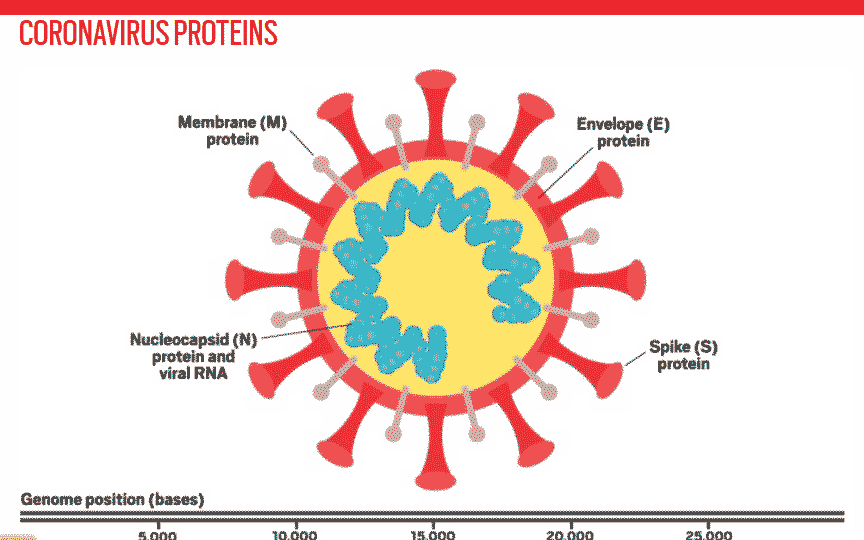
This is another one in the problem solving series. And it’s a little involved.
COVID-19 is caused by the coronavirus, something a vast majority of people in the world likely knows. But what many might not know about the virus is the fact that they mutate and potentially produce versions of itself that are considerably more virulent for example.
RNA is made up of the sequential arrangement of nucleotides. The nucletides that make up RNA are differentiated by the base they contain. The bases are adenine (A), cytosine (C), guanine (G), and uracil (U). (In DNA the fourth base is thymine instead of uracil.)
Coronavirus RNA consists of 29811 nucleotides — that is 29811 sequential combinations of nucleotides made up of the four bases.
Coronaviruses may be genetically different from one another in the sequence of the bases in their strand of RNA or the make up (the number of each of the bases) of the RNA. For example, were a very simple virus with an RNA consisting of only 10 nucleotides existed, letting the letters represent the bases, A-C-G-A-U-G-G-U-A-G and A-G-C-A-U-G-A-U-G-G have the same number of each base (3A, 1C, 4G, 2U) but their sequence is different. The following C-G-U-A-U-U-G-G-C-U containing 1A, 2C, 3G, and 3U is different from the others in the number of each bases in the RNA.
Here finally is the question.
How many genetically different coronavirus exist in theory? Again, remember, RNAs can be different in either the NUMBER of nucleotide of different bases or in the order of those bases.
Coronavirus reproduce asexually — i.e. by just cell division. But, for one or another reason — such as by random chance or due to external force, such as radiation — the new virus produced by replication might NOT be an exact copy of the original in terms of its RNA composition and/or the sequence of the bases. The process is referred to as mutation.
(Incidentally, this is the sixth problem in the series of blog posts about challenging problems. Click here for the first one, here for the second one, here for the third one, here for the fourth one, and here for the fifth one. This card problem is about exponential growth and in that way and therefore also about coronavirus. Click here for a description of the reason behind the series and what modeling means.)
